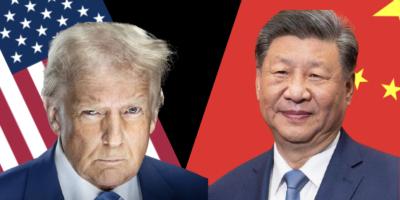Beijing swiftly, but moderately, retaliated by imposing retaliatory tariffs on a variety of US imports, including fuel and agricultural products, as well as taking action against specific American businesses and increasing export controls. During his roughly one-hour speech on Wednesday in the Rose Garden of the White House, Trump stated, “I have great respect for President Xi (Jinping) of China, great respect for China, but they were taking tremendous advantage of us.” “They know exactly what’s going on, and… they’re going to fight,” Separately, Trump announced a number of country-specific measures, including an additional 10% tariff on all imports into the United States, which particularly impacted Asian nations and rattled global markets and businesses. As part of his radical overhaul of a century of American global trade policy, President Donald Trump announced significant new tariffs on China’s exports to the United States. China has pledged to respond. Wednesday, Trump announced tariffs of 54% on all Chinese imports into the United States, threatening to intensify a trade war between the world’s two largest economies and force a major reorganization of relations. China’s Ministry of Commerce issued a statement on Thursday morning that read, “China firmly opposes this and will resolutely take countermeasures to safeguard its own rights and interests.” The ministry urged the United States to cancel the tariffs and “properly resolve differences with its trading partners through equal dialogue,” describing the move as a “typical unilateral bullying practice” that serves as the centerpiece of Trump’s effort to reshape international trade rules. According to the statement, “The United States has drawn the so-called “reciprocal tariffs” based on subjective and unilateral assessments,” which is against international trade rules and seriously harms the legitimate rights and interests of relevant parties. The so-called “reciprocal” tariffs, which Trump announced on Wednesday, add 34% to the 20% already imposed on all Chinese imports into the United States. Trump had already imposed two tranches of 10% additional duties on all imports from China since his return to power in January. The White House claimed that this was necessary to stop the flow of illegal fentanyl from China to the United States.
